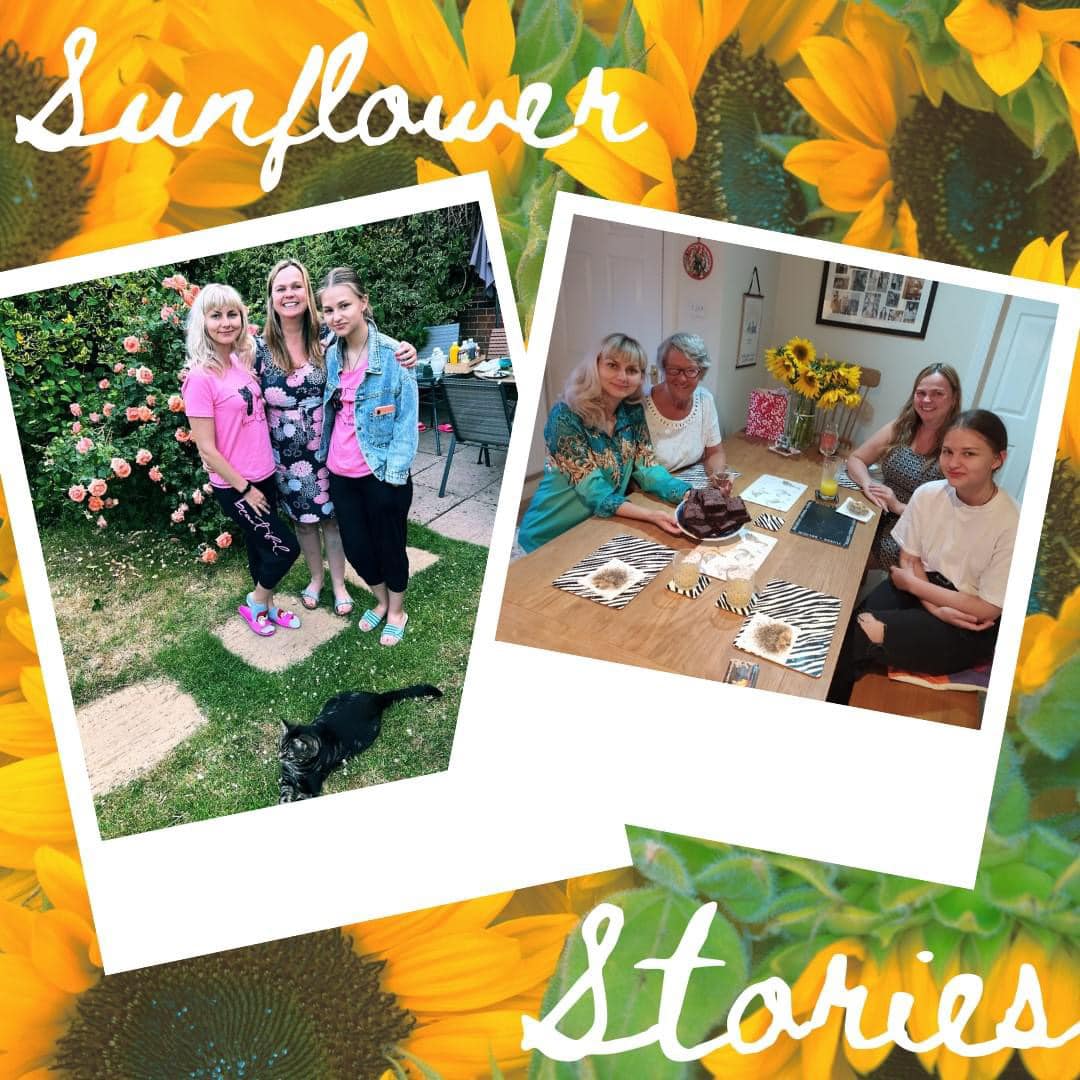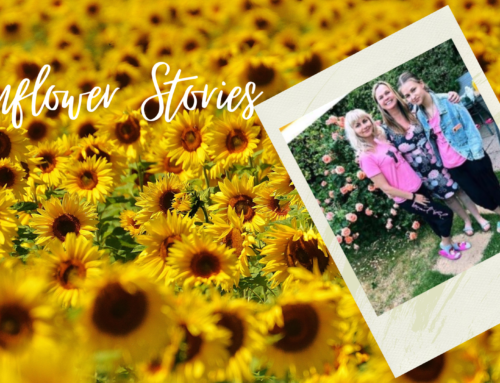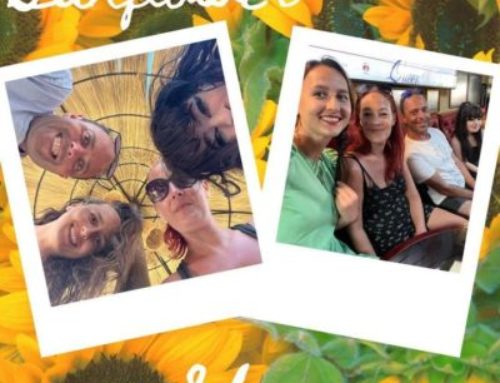Today we have sponsor Jo and her guest Helen
Jo (Sponsor)
How did you navigate the early days of hosting and what tips can you share?
I live in a small village in Northamptonshire with my partner and 3 cats. There is a lot to do in the first few days and if you are able to take some time off work, I would recommend it as it’s mentally exhausting if you are trying to juggle work/family as well. Helen speaks good English, however I went along to the first two Universal Credit appointments with her to ensure she understood everything.
How did you integrate your guest into the local community?
Prior to Helen’s arrival I had been active in our local village community, promoting Sunflower Sisters in my role as Coordinator for Northamptonshire. I recruited a few older ladies in the village through a plea for help I made at our church. One neighbour in particular has been an enormous support to us, helping with little trips out in the early days, inviting my guests round for tea and helping with driving to appointments. They see her as their English Grandma! I also asked for local teenagers in the village to befriend Mary and help her to settle into school. It was really heart-warming to see how many local teens wanted to help and I think it really helped Mary to have a few friends before she actually started at school.
What challenges have you experienced along the way and how did you overcome them?
Living in a rural village with limited public transport has been the biggest challenge for us. Helen started work as a housekeeper at a hotel in the next village, which there is no public transport to. To start with I was driving her there and back to work, early in the morning and then again at lunchtime when she finished. We contacted a friend who leads a local charity and asked if they could support us – they got together a group of their volunteer drivers and are now supporting us with transport, which has made a huge difference.
How have you dealt with any cultural differences or communication challenges?
I have very much enjoyed learning about the cultural differences between Ukraine and the UK and we all like talking about the similarities and differences.
Jo
I have learnt to be more direct in my communication and “beat less about the bush”. Explaining things in plain English in a simple, easy to understand format is important for non-Native speakers. Use translation apps to support you as needed. If things are not always clear I would recommend writing it down or sending in whatsapp so your guest can read at her leisure and translate as needed to avoid any misunderstanding. I think it’s also important to be mindful that its very tiring conversing in a foreign language all the time; your brain has to work that bit harder so give your guests time to absorb information.
Any final tips for future hosts?
Make time for yourself – as mothers/wives/hosts/workers we often put our own personal well-being to the bottom of the list. I took a week’s holiday when we were only 3 weeks into hosting and it did me the world of good. A few hours to yourself or better still a day having a walk/coffee/natter with a friend really helps to re-charge. And don’t be afraid to ask for help in your local community. Our villagers have really wanted to help and have been awesome, plus I have made some great new friends!
Related Posts
Helen (Guest)
How did you find the early days when you arrived in the UK & What challenges did you face?
I am an English teacher from the Luhansk region in Ukraine. I am in the UK with my 15 year old daughter. We were already knowledgeable about British culture through my work. However, our first days were difficult as this was our first time abroad; although I am an English speaker I had never spoken with a native English speaker before. We needed to listen carefully to retune our ears to native speakers. We found the prices in the supermarket expensive to start with as we were always comparing prices in Ukraine. After one month we stopped comparing and got used to what things cost. At first it was difficult to find the best place to buy buckwheat, kefir, cottage cheese and other similar products. We also had to get used to living in a village; there are not many buses so we had to depend on our host for transport. We were nervous speaking English to strangers to start with, but our tips to Ukrainian guests would be to use simple words and grammar and don’t be afraid to speak; people will understand you!
How did you adapt to living with a UK host – what were the main differences for you?
Our host has adult children who live away so there were no significant differences. Our tips to other Ukrainians: be honest, open, polite, easy going, don’t be afraid to ask questions or seek advice when you don’t know something. Remember good communication is important. Help with the housekeeping, keep your space clean and tidy.
How did you settle into life in the local community?
We were introduced to neighbours and teenagers who attend the local high school and friends of our host in the first two weeks. We felt there was good emotional support from the village; they were very welcoming and generous. We were given a laptop for my daughter from a local charity and received a community donation towards the cost of school uniform. I recommend offering your support and help to people in your local community. I helped an elderly neighbour with some cleaning and shopping and she would help me in return with driving to some appointments and to church. We are also now helping to look after a neighbours’ pets whilst they are away on holiday.
Describe your experience of starting work and school in the UK?
I started work as a housekeeper after 3 weeks of arriving in the UK. I recommend trying to be confident about your work skills, ask questions, be friendly and and don’t be afraid to make mistakes. My daughter aged 15 already speaks good English, however she found the speed and diction of the other teenagers tough at the beginning. However, the emotional support from both her classmates and teachers for Ukrainians was great. Although studying in a foreign language is difficult, the teachers try to make it easier with translations, presentations etc
What challenges have you experienced along the way and how have you overcome them?
Transport to work was the main challenge, however we overcame that with our host finding a group of volunteer community drivers to support us Sharing Tips for Future Ukrainian Guests
Any final tips?
Try to get involved in your local community as much as possible. Learn English as best you can. Try to get on with your life, but don’t forget your heritage and never dishonour our nation. Be proud to be Ukrainian!
Just to note: we are happy for the text of these posts to be shared to other groups if you think they are helpful, as long as they are shared accurately
"Sisters Stories" Is a series of discussion topics hosted by Sunflower Sisters on their private community group on Facebook. Its a place where sponsors and guests reflect honestly and constructively on their experiences within the scheme. Their experiences will not always be plain sailing, but they will be real, and we make no apologies for the accounts in this series ultimately being satisfying ones! Some will be short and snappy, and others will need you to make a cuppa or pour a glass of wine and settle down to read, but we hope all will be insightful, interesting and perhaps give you something to think about. #SunflowerStories The group is open to ladies only and is a support group for both sponsors and guests, you can take part in the debate by joining our private community homepage by clicking the button below.
This story was originally posted on Facebook on 02/09/202








Leave A Comment